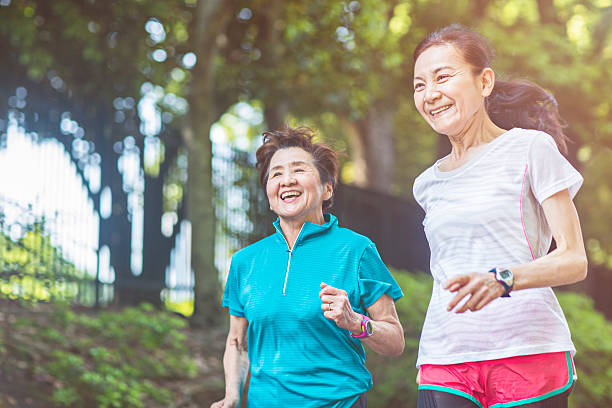We bring gold standard healthcare to you.
Cancer Rehabilitation

We are here to support you in your cancer management with holistic and multidisciplinary therapy throughout the cancer journey.
The ultimate goal of cancer rehabilitation is to promote functional independence and improve the quality of life.
Essential Information
Is cancer rehabilitation safe?
It is important to maintain activeness and keep moving during the cancer journey. Studies have shown that exercise is safe, feasible, and beneficial to quality of life for many cancer survivors both during and after treatments (Courneya, Jones, & Mackey, 2006). Lifeweavers therapists are skilled with the knowledge of cancer management and can tailor appropriate therapy throughout your cancer journey.
Why are exercise and physical activity beneficial?
Exercise and physical activity not just strengthen the body physically, but also helps to improve your mood, appetite, and sleep. It also aids to lower cancer-related fatigue and decreases stress and anxiety. The National Comprehensive National Network (NCCN) recommends being physically active everyday while incorporating moderate-intensity exercise at least 150mins a week (NCCN, 2020)
When can I start rehabilitation?
Cancer rehabilitation can be done at any stage of the cancer journey, with slightly different purposes and goals. However, cancer rehabilitation ultimately aims to promote functional independence and enable participation in your valued activities.
Pre-treatment
The goal of pre-treatment is to enhance your physical condition in preparation for upcoming treatment. It is normal to expect some functional decline post-treatment hence it is important to optimise function as much as possible.
Post-treatment
It is common post-treatment to experience deconditioning, reduced physical strength, endurance, and activity tolerance.
The following side effects affecting function might also occur post-treatment:
Surgery:
- Reduced range of motion of the affected limb
- Lymphedema/swelling of affected limb or area due to blocked or removal of lymph nodes
Radiotherapy:
- Tightness and scarring over the affected area and neighbouring limb joints
Chemotherapy:
- Fatigue and nausea
- Reduced sensation/numbness over hands and feet affecting bilateral hand use and walking
Chemo brain
How can Lifeweavers help?
Our multi-disciplinary team with Dieticians, Physiotherapists, Occupational Therapists and Lymphatic Specialists will work closely together with you and your family with the aim to increase quality of life and enable participation in daily activities. This can be through facilitating interventions in the following areas:
Physical:
- Improve joint range of motion
- Prevent deconditioning and increase muscle strength
Cognitive:
- Incorporating memory strategies into daily life
- Cognitive training
Management of activities:
- Modification of activity demands
- Equipment prescription
- Home modifications
Fatigue and pain management:
- Energy conservation and activity pacing strategies
- Establishing daily and sleep routines
- Identifying symptom triggers and application of non-pharmacological strategies
Psychosocial:
- Impact of cancer on body image
- Stress and anxiety management strategies
We even have a therapist who is a trained yoga instructor who uses Yoga as a treatment modality, do contact us if you would like to know more.
NCCN guidelines for patients: Survivorship care for the healthy living, 2020
What is lymphedema?
Lymphedema is a common side effect of cancer, as the lymph nodes which aid to circulate the lymph flow in our body are affected by the cancer cells. The resulting blockage of the lymph nodes or surgical removal of lymph nodes during cancer treatment may cause the affected area to swell due to the accumulation of lymph fluids. Lymphedema commonly occurs in the affected arms or legs, but can also occur anywhere on the body.
What happens if lymphedema is not treated?
In the earlier stages of lymphedema, one will start to notice a difference in limb size and swelling starts to become visible.
If lymphedema is not well managed, In the later stages there will be underlying skin and cellular changes resulting in skin thickening and scarring. The fluids and texture under your skin no longer feel soft, but will start to feel hardened and lumpy. Advanced stages of lymphedema might even require surgical intervention.
As lymphedema progresses, the limb will start to feel heavier due to the swelling and will affect the function of your affected limb. One may find it more uncomfortable or difficult to use the arms or legs for daily activities.
How can lymphedema therapy help?
Although there is no cure for lymphedema, studies have shown that with good management, many can go about their daily lives with no or little impact from their lymphedema.
Decongestive therapies:
Our trained lymphedema therapist will use a combination of the following techniques to manage your affected area:
- Manual lymphatic drainage massage (MLD)
- Compression garment prescription (custom-made available)
- Bandaging
Self-management:
You play a big role in your lymphedema management journey, and we hope to empower and equip you with the skills how to take care of your affected area. Our therapist will also guide you through good skin care strategies, and self-arm massage techniques, and recognise the risk factors for lymphedema.
When combined, self-management and decongestive therapies are the gold standard for lymphedema management for optimal results.
Feel free to Whatsapp us for a free consult.
Lifeweavers is a multi-disciplinary therapy team of highly experienced rehabilitation clinicians consisting:
– Occupational Therapists
– Physiotherapists
– Speech Therapists
– Hand Therapists
– Dieticians
– Stretch Therapists
– Specialised Massage Therapists
We also work with rehab doctors, counsellors and links up with support groups, social prescriptions and external vendors with other specialised services or equipment to assist our clients every step of the way on their recovery journey.

